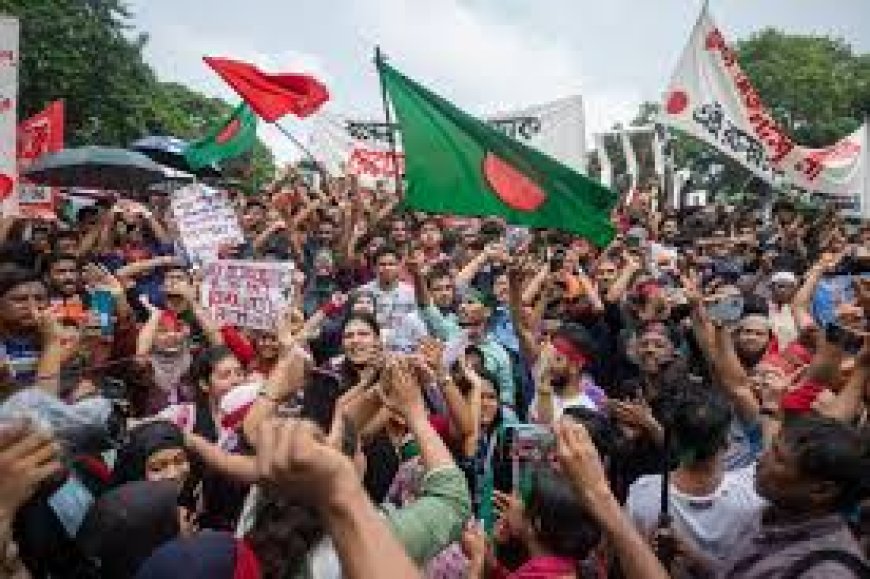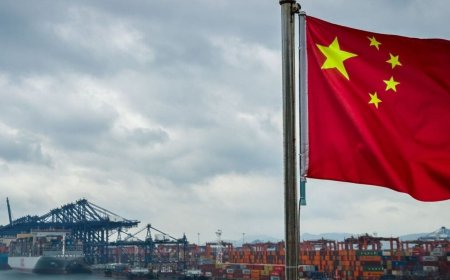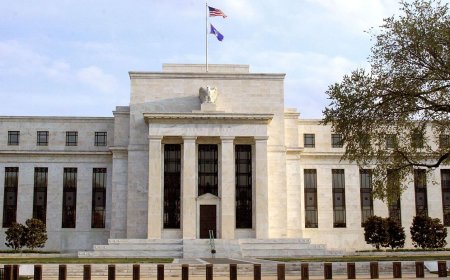Dhaka Diary 1: Fading impact of July 2024 uprising.
Nearly a year after the July 2024 uprising in Bangladesh, the economic and political impact is gradually fading. Read the latest analysis on Dhaka’s recovery, public sentiment, and investor outlook.

Nearly a year after the dramatic uprising that gripped Bangladesh in July 2024, Dhaka’s streets are calm, and the rhythm of daily life has resumed. While the events of last summer once threatened to upend the country's political and economic trajectory, recent indicators suggest that the uprising's impact is steadily fading. Businesses are recovering, foreign investors are tentatively re-engaging, and the political landscape is gradually stabilizing — though with deeper undercurrents that remain unresolved.
Background: The July 2024 Uprising
The uprising, sparked by mass discontent over inflation, power shortages, and alleged electoral manipulation, drew hundreds of thousands to the streets of Dhaka and other major cities. For weeks, the capital was paralyzed. The government’s eventual crackdown led to dozens of casualties and mass arrests, with widespread condemnation from international rights groups. Yet, amid the chaos, what many termed a “people’s movement” failed to translate into systemic political change.
Economic Indicators Show Signs of Stabilization
Bangladesh's economic recovery from the unrest has been halting but evident. According to the Bangladesh Bureau of Statistics, GDP growth is projected to hit 5.6% in FY2024-25, a slight rebound from the 4.1% posted in the tumultuous previous fiscal year.
"Stability, even if fragile, is returning to Dhaka’s economic core," said Tariq Haider, an economist at the South Asian Development Institute. “The garment sector, which faced export order cancellations due to the political volatility, has reported a 9% uptick in new contracts since January 2025.”
The taka, which had depreciated sharply during the protests, has since regained 4.3% against the dollar, signaling renewed confidence. Foreign exchange reserves, which dipped below $20 billion in late 2024, have crossed the $24 billion mark as of May 2025.
Political Landscape: Calm or Complacency?
Despite visible calm, the political landscape remains unsettled. The ruling Awami League has consolidated power but faces ongoing criticism for its handling of dissent. While a national dialogue was proposed in early 2025 to address governance reforms, talks have largely stalled.
“The uprising may have lost momentum on the surface, but the underlying dissatisfaction has not vanished,” warned Rehana Karim, a political analyst with Dhaka University. “There’s a growing political vacuum, particularly among youth and first-time voters, that no party seems to be filling credibly.”
Opposition parties, though still fractured, have signaled plans to regroup ahead of local elections slated for late 2025. However, surveillance, arrests, and media crackdowns continue to inhibit organized resistance.
Street-Level Sentiment: Fatigue and Focus on Survival
Among ordinary Dhaka residents, fatigue from last year’s unrest is palpable. For many, the focus has shifted from activism to economic survival.
“People are tired,” said Nayeem Sardar, a tea vendor in Shahbagh. “We protested, shouted, and lost time and money. Now we just want peace and food on the table.”
This sentiment is echoed in informal sectors, where daily wage workers bore the brunt of economic disruptions during the uprising. While protests once drew mass participation from these groups, their current disillusionment could dampen future movements.
Investor Outlook: Cautious Optimism
From an investment standpoint, the fading impact of the uprising offers mixed signals. The Dhaka Stock Exchange (DSE) has stabilized, with the DSEX index up 6.7% year-to-date. Sectors like telecom, consumer goods, and microfinance have led the gains, while real estate and infrastructure remain sluggish due to lingering regulatory uncertainty.
Foreign direct investment (FDI) inflows, which dropped by 22% in 2024, have seen a modest recovery in Q1 2025, particularly from Asian investors. Japan’s Sumitomo Corporation and India’s Adani Group have resumed infrastructure projects that were previously put on hold.
“Bangladesh still offers one of the most dynamic frontier market stories in Asia,” said Michael Tan, portfolio manager at Frontier Markets Capital in Singapore. “But political stability and judicial independence are key prerequisites for sustained investor confidence.”
Looking Ahead: Lessons and Lingering Questions
The July 2024 uprising may no longer dominate headlines, but it has left behind a changed political and economic terrain. While some institutions have adapted, others remain brittle. The challenge for Bangladesh moving forward will be managing dissent through inclusion rather than suppression.
The country’s next big test may come during the 2025 municipal elections. Analysts are watching closely to see whether civic engagement resurges or apathy prevails.
As Farah Hossain, a civil society activist, put it: “The fire has dimmed, not died. Bangladesh is still negotiating what kind of democracy it wants to be.”
What's Your Reaction?
 Like
0
Like
0
 Dislike
0
Dislike
0
 Love
0
Love
0
 Funny
0
Funny
0
 Angry
0
Angry
0
 Sad
0
Sad
0
 Wow
0
Wow
0













































































